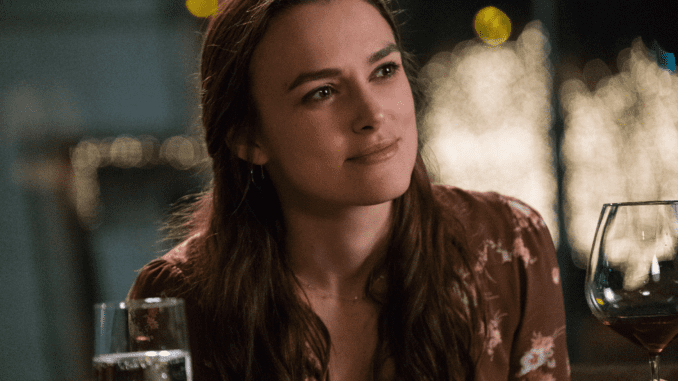
Should you watch this at all? I guess.
Should you watch this if it’s free? No.
Score: 1.0/5
Secret ending? No.
Running time: 97 minutes (~1.5 hours)
“Collateral Beauty” is a semi-romance drama with an ensemble cast.
An advertising firm finds itself in dire straits when its founder is unable to overcome his grief at losing his daughter and spends his days writing to Love, Time, and Death. Left with no choice, his three other business partners hatch a plan to get three actors personifying Love, Time, and Death to help the grieving father overcome his issues.
It stars Will Smith (Howard Inlet), Edward Norton (Whit Yardshaw), Keira Knightley (Amy/Love), Michael Pena (Simon Scott), Naomie Harris (Madeleine), Jacob Latimore (Raffi/Time), Kate Winslet (Claire Wilson), and Helen Mirren (Brigitte/Death). It is rated PG-13.
“Collateral Beauty” looks like the ultimate chick flick — a title that screams love and emotions, a plot that sounds like it would have plenty of touching declarations, a fantastic cast, and a very manageable run time. But it’s not.
“Collateral Beauty” is a tremendous disappointment precisely because it had so much going for it. It gets everything right except for the script. A clumsy story, dialogue that would make you cringe and laugh at the same time, and unnatural plotting combine to show you a film that’s paved with good expectations but goes down the road of inexperience. It’s almost as if this is the production team’s very first student project with a multi-million dollar budget.
Highlights
An intriguing premise
The idea behind the film is a very, very interesting one — writing letters to three abstractions that form the basis of all human motivation. It’s thought-provoking since you immediately start to formulate your own letters, and you can also identify with the issues brought up in those letters. Getting three actors to play those parts is, admittedly, a strange development, but a fascinating one nonetheless, since it causes the audience to also wonder about their own responses to these abstractions.
The execution, however…
Letdowns
Thick exposition
We have to wade through great swaths of boring explanation to set up the contrived situation that the four partners find themselves in. As seasoned performers, their delivery turns this information dump into an evocative display of (ultimately meaningless) emotion. But this is a rookie writing mistake. Which writer worth his salt would put so much explanation at the beginning of the film instead of parsing it out gradually through the film?
Cheesy, on-the-nose shots
In one memorable moment, a woman tells the story of how she lost her son. The camera flat-on zooms in on her face as she does so, without any sense of angle or depth or direction, ending just as she finishes her sorry tale. You can see the intention behind the shot, but it looks like it’s the first time the director has shot a film. Similar shots puncture the rest of the film, making you wonder if the director has watched any film before, or if he’s just following instructions from a film direction textbook.
Dialogue culled from memes and quotable quotes
The dialogue is so bad it’s almost comedic at times. Everyone says exactly what they say or feel, with no subtext unless added by the actors (which you know is pointless because it is never followed up on), using lines that appear on motivation posters and memes. You want to know if the writer succumbed to some sort of challenge to only write lines using words that appear in lists of quotable quotes.
Too neatly packaged
It’s understandable not to want to leave loose ends. It’s another thing to make sure that everything feels as neat and structured as a Lego brickhouse. Three abstract entities? Why, the main character has three friends who coincidentally, identify with each entity. Everyone suddenly spouts their sad stories in successive scenes, and everyone’s problems are later resolved one after another in the denouement. It’s so perfectly put together that it feels like a bad fairy tale. Adding “And they lived happily ever after” at the end of the movie wouldn’t be out of place, thanks to this awkward neatness.
“Collateral Beauty” tells but doesn’t show.
“Collateral Beauty” opens in cinemas:
– 5 January, 2016 (Singapore)
– 15 December, 2016 (Malaysia)
– 4 January, 2016 (Philippines)
This article was also published on Yahoo!.
Marcus Goh is a Singapore television scriptwriter. He’s also a Transformers enthusiast and avid pop culture scholar. He Tweets/Instagrams at Optimarcus and writes at marcusgohmarcusgoh.com.
If you liked the article, follow me on Facebook and Twitter for more (presumably) good updates!
To get in touch with me, send an email!
Leave a Reply